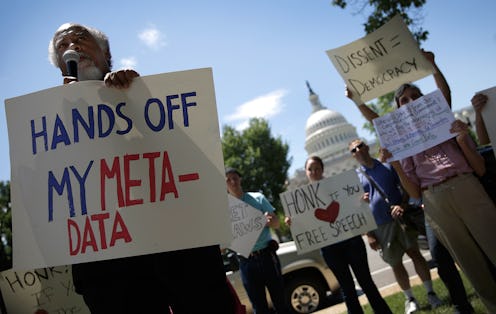News
NSA Surveillance Looking More and More Illegal
As reporters sift through the pile of National Security Agency (NSA) documents declassified Wednesday, evidence mounts that the agency's surveillance was illegal — and much more pervasive than anyone knew.
One newly declassified 2011 opinion from the Foreign Intelligence Surveillance Court (FISA) shows that even the court sometimes had concerns over the constitutionality of the spy agency's tactics.
In a strongly worded, 85-page long opinion, chief judge John D. Bates wrote what the Washington Post calls a "scathing" indictment of the tapping into 56,000 communications between Americans, which included tens of thousands of emails. Bates also accused the NSA of misleading the court about their practices: “For the first time, the government has now advised the court that the volume and nature of the information it has been collecting is fundamentally different from what the court had been led to believe."
In short: FISA had problems way beyond PRISM, or the federal program pulling data from major internet servers (Google, AOL, Facebook). As reporter Ellen Nakashima explains:
At issue here was the less voluminous “upstream” collection that takes place as communications flow across Internet hubs — not from service providers such as Google. Under that program, the NSA diverted international data passing through fiber-optic cables in the United States into a repository where the material could be stored temporarily for processing and for the selection of foreign communications, rather than domestic ones. But in practice, because of technological difficulties, the NSA was unable to filter out the “wholly domestic” communications between Americans.
The court struck down the program in 2011, but Judge Bates wasn't confident a "meaningful review" of the "entire body of the transactions" had been conducted. Without knowing the exact number of documents collected, he said "significant hurdles" to judging its constitutionality remained. In April 2012, the NSA says it purged the information collected through the program in question.
But, as we now know, not enough was purged to keep the NSA out of hotter and hotter water.
